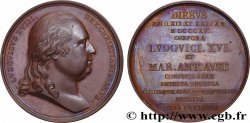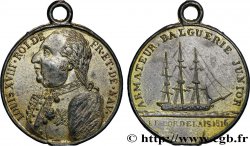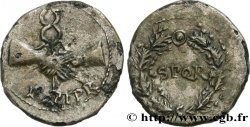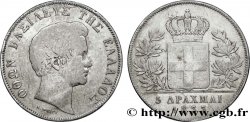Чтобы принять участие в торгах, вы должны войти в систему и стать подтвержденным участником аукциона. Войдите, чтобы сделать ставку. Ваш аккаунт будет подтвержден в течение 48 часов. Не ждите до закрытия торгов, чтобы зарегистрироваться.Сделав ставку на данный товар, вы вступаете в юридическое соглашение на покупку выбранного товара и нажатием кнопки «Сделать ставку» подтверждаете принятие вами условий интернет-аукционов cgb.fr.
Ставка может бить сделана только в полном эквиваленте евро. Торги закроются согласно времени, указанному в описании товара, все ставки, сделанные после закрытия торгов, учитываться не будут. Не следует откладывать предложение вашей ставки до последнего момента, так как система может не успеть обработать вашу заявку, и ваша ставка не будет принята. Более детальную информацию вы найдёте здесь: FAQ по интернет-аукционам.
Все ставки победителей подлежат комиссии 18%.
Все ставки победителей подлежат комиссии 18%.
| Оценить : | 150 € |
| Цена : | 95 € |
| Максимальная предлагаемая цена : | 100 € |
| Конец торгов : | 25 October 2022 18:20:56 |
| Участников : | 2 Участников |
Тип Médaille parlementaire, Bertrand Villemain
Дата: 1820
Металл: silver
Диаметр: 40,5 mm
Ориентация осей монеты: 12 h.
Гравер GAYRARD Raymond (1777-1858) / DE PUYMAURIN Jean-Pierre (1757-1841)
Вес: 41,28 g.
Век: gravée : M. B. VILLEMAIN ELU LE 12 7.BRE 1819 PAR LE DEP.T DU MORBIHAN
Пуансон: sans poinçon
Комментарии о состоянии
Médaille astiquée, malheureusement fortement nettoyée. Présence de plusieurs coups et rayures, notamment sur la tranche
Лицевая сторона
Аверс: легенда: LOUIS XVIII ROI - DE FRANCE ET DE NAV..
Аверс: описание: Buste à droite de Louis XVIII; signé : GAYRARD F. et DE PUYMAURIN D..
Обратная сторона
Реверс: легенда: VIVE LE ROI // CHAMBRE / DES DÉPUTÉS / HONNEUR / ET / PATRIE // SESSION DE / 1820.
Реверс: Описание: Légende en sept lignes sous une couronne, dans une couronne de chêne.
Комментарий
La médaille a été décernée à Bertrand Villemain (1775-1858). Entré dans les dragons volontaires de Lorient et devenu officier, il quitte au début du Consulat pour s’occuper d’industrie. Capitaine de la garde nationale en 1808, conseiller municipal de Lorient en 1808, adjoint au maire en 1809, commandant de la 3e cohorte de la garde nationale mobile du Morbihan en 1813, il devint, en janvier 1814, chef des cohortes de la garde mobile de Lorient.
Il sera élu député du Morbihan en 1819, ainsi qu’en 1830 et 1831.
Par la suite, il sera maire de Lorient (1830-1836), conseiller général, commandant de la garde nationale et membre du conseil général du commerce, sous préfet de Lorient en 1835.
La Chambre des députés des départements (selon le titre exact de cette assemblée dans la charte de 1814), ou plus usuellement Chambre des députés, était une assemblée législative française instituée par la charte de 1814 et élue au suffrage censitaire.
Elle est constituée le 4 juin 1814 par les membres du Corps législatif de l’Empire, et compte alors 237 membres. Le 20 mars 1815, au début des Cent-Jours, elle est dissoute et remplacée en juin par une Chambre des représentants.
Après le retour de Louis XVIII, les élections des 14 et 22 août donnent aux ultra-royalistes ou ultras une majorité de 350 sièges sur 400. Le roi parle de « Chambre introuvable » ; gêné par son radicalisme réactionnaire, il la dissout le 5 septembre 1816, et le 25 octobre, les élections sont favorables aux « constitutionnels », c’est-à-dire aux modérés.
Les députés sont d’abord élus pour cinq ans et la Chambre renouvelée par cinquièmes. En application de la loi du 9 juin 1824, leur mandat est de sept ans et le renouvellement est intégral. Les élections, en 1827 et 1830, seront cependant provoquées par des dissolutions..
The medal was awarded to Bertrand Villemain (1775-1858). Having joined the volunteer dragoons of Lorient and become an officer, he left at the start of the Consulate to work in industry.. Captain of the National Guard in 1808, municipal councilor of Lorient in 1808, deputy mayor in 1809, commander of the 3rd cohort of the Morbihan mobile national guard in 1813, he became, in January 1814, head of the cohorts of the mobile guard of Lorient.
He was elected deputy of Morbihan in 1819, as well as in 1830 and 1831..
Subsequently, he was mayor of Lorient (1830-1836), general councilor, commander of the national guard and member of the general council of commerce, sub-prefect of Lorient in 1835.
The Chamber of Deputies of the Departments (according to the exact title of this assembly in the charter of 1814), or more usually Chamber of Deputies, was a French legislative assembly established by the charter of 1814 and elected by census suffrage.
It was formed on June 4, 1814 by members of the Legislative Body of the Empire, and then had 237 members.. On March 20, 1815, at the beginning of the Hundred Days, it was dissolved and replaced in June by a House of Representatives.
After the return of Louis XVIII, the elections of August 14 and 22 gave the ultra-royalists or ultras a majority of 350 seats out of 400.. The king spoke of an \\\"unfindable Chamber\\\"; embarrassed by its reactionary radicalism, he dissolved it on September 5, 1816, and on October 25, the elections were favorable to the \\\"constitutionalists,\\\" that is to say, the moderates..
The deputies are first elected for five years and the Chamber renewed by fifths. In application of the law of June 9, 1824, their mandate is seven years and renewal is complete.. The elections in 1827 and 1830, however, were caused by dissolutions.
Il sera élu député du Morbihan en 1819, ainsi qu’en 1830 et 1831.
Par la suite, il sera maire de Lorient (1830-1836), conseiller général, commandant de la garde nationale et membre du conseil général du commerce, sous préfet de Lorient en 1835.
La Chambre des députés des départements (selon le titre exact de cette assemblée dans la charte de 1814), ou plus usuellement Chambre des députés, était une assemblée législative française instituée par la charte de 1814 et élue au suffrage censitaire.
Elle est constituée le 4 juin 1814 par les membres du Corps législatif de l’Empire, et compte alors 237 membres. Le 20 mars 1815, au début des Cent-Jours, elle est dissoute et remplacée en juin par une Chambre des représentants.
Après le retour de Louis XVIII, les élections des 14 et 22 août donnent aux ultra-royalistes ou ultras une majorité de 350 sièges sur 400. Le roi parle de « Chambre introuvable » ; gêné par son radicalisme réactionnaire, il la dissout le 5 septembre 1816, et le 25 octobre, les élections sont favorables aux « constitutionnels », c’est-à-dire aux modérés.
Les députés sont d’abord élus pour cinq ans et la Chambre renouvelée par cinquièmes. En application de la loi du 9 juin 1824, leur mandat est de sept ans et le renouvellement est intégral. Les élections, en 1827 et 1830, seront cependant provoquées par des dissolutions..
The medal was awarded to Bertrand Villemain (1775-1858). Having joined the volunteer dragoons of Lorient and become an officer, he left at the start of the Consulate to work in industry.. Captain of the National Guard in 1808, municipal councilor of Lorient in 1808, deputy mayor in 1809, commander of the 3rd cohort of the Morbihan mobile national guard in 1813, he became, in January 1814, head of the cohorts of the mobile guard of Lorient.
He was elected deputy of Morbihan in 1819, as well as in 1830 and 1831..
Subsequently, he was mayor of Lorient (1830-1836), general councilor, commander of the national guard and member of the general council of commerce, sub-prefect of Lorient in 1835.
The Chamber of Deputies of the Departments (according to the exact title of this assembly in the charter of 1814), or more usually Chamber of Deputies, was a French legislative assembly established by the charter of 1814 and elected by census suffrage.
It was formed on June 4, 1814 by members of the Legislative Body of the Empire, and then had 237 members.. On March 20, 1815, at the beginning of the Hundred Days, it was dissolved and replaced in June by a House of Representatives.
After the return of Louis XVIII, the elections of August 14 and 22 gave the ultra-royalists or ultras a majority of 350 seats out of 400.. The king spoke of an \\\"unfindable Chamber\\\"; embarrassed by its reactionary radicalism, he dissolved it on September 5, 1816, and on October 25, the elections were favorable to the \\\"constitutionalists,\\\" that is to say, the moderates..
The deputies are first elected for five years and the Chamber renewed by fifths. In application of the law of June 9, 1824, their mandate is seven years and renewal is complete.. The elections in 1827 and 1830, however, were caused by dissolutions.







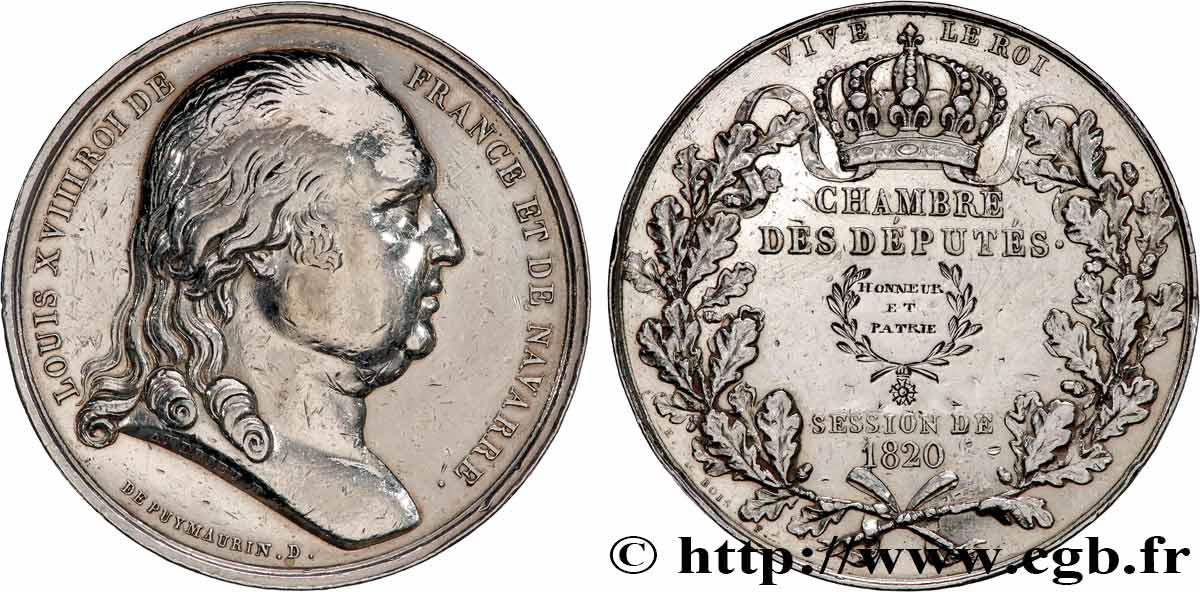
 Cообщить об ошибке
Cообщить об ошибке Распечатать страницу
Распечатать страницу Отправить мой выбор
Отправить мой выбор Задать вопрос
Задать вопрос Consign / sell
Consign / sell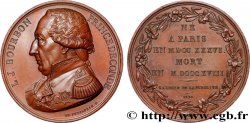
 Информация
Информация
